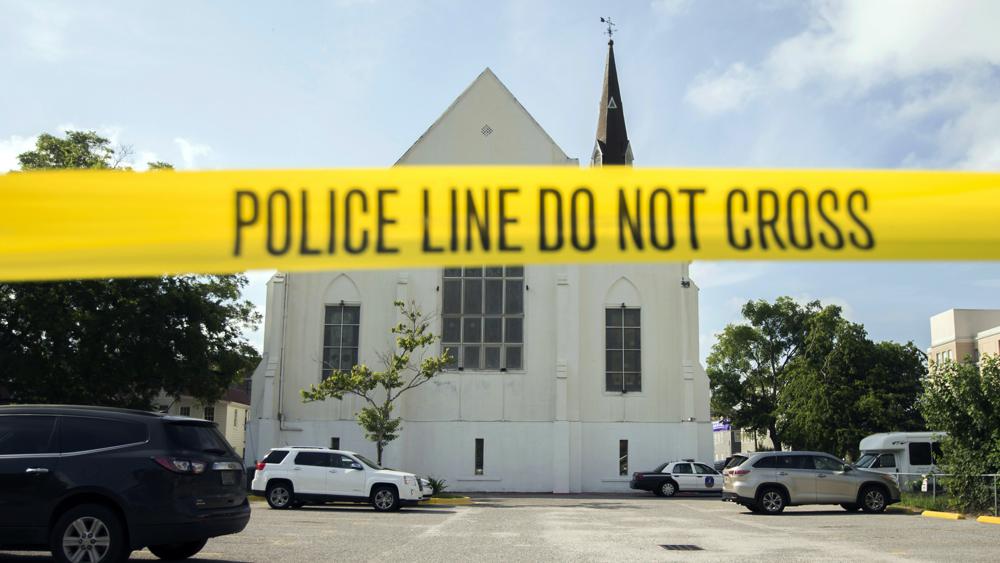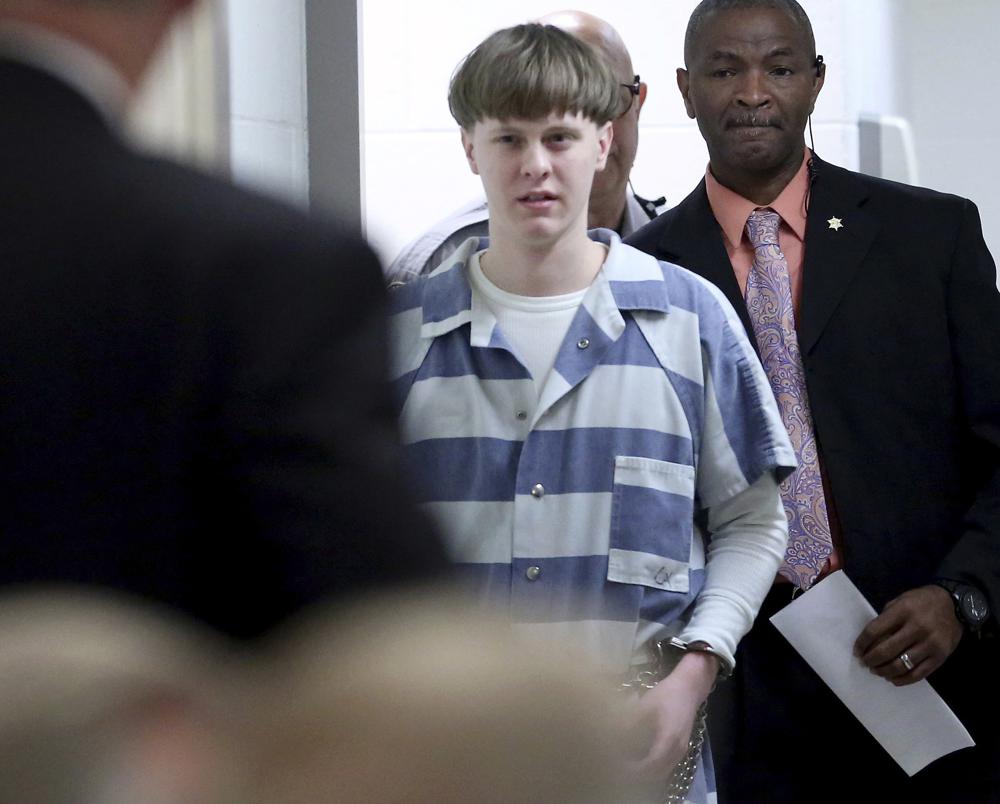US argues Supreme Court shouldn’t review Dylann Roof case
Dylann Roof was sentenced to death for the racist massacre at Emanuel AME Church in 2015
Dylann Roof’s death sentence and conviction in the 2015 racist slayings of nine members of a Black South Carolina congregation should be upheld and don’t merit review by the U.S. Supreme Court, attorneys for the federal government wrote in a filing Wednesday.
Attorneys for the U.S. Justice Department argued in the 39-page brief that Roof “fails to identify any meaningful disagreement in the lower courts” over how his legal representation played out at trial.
The brief came in response to a request from Roof’s attorneys that justices take up his case, asking the court earlier this year to decide how to handle disputes over mental illness-related evidence between capital defendants and their attorneys.

When a capital defendant who has been ruled competent to stand trial and his attorneys “disagree on whether to present mitigating evidence depicting him as mentally ill, who gets the final say?” Roof’s appellate team wrote in their February petition.

The Myth of the MAGA Republican
But on Wednesday, noting that “the ultimate objective of his defense was to avoid the death penalty,” Justice Department lawyers argued that Roof “was not … entitled to control his counsel’s strategy for achieving that objective by dictating the mitigation evidence that they could introduce.”
Roof’s self-representation and desire to block any evidence potentially portraying him as mentally ill — even if it could have helped him avoid the death penalty — has been a constant in his case.
During the sentencing phase of his death penalty trial, Roof fired his legal team and opted to represent himself. This move, his appellate attorneys have written, successfully prevented jurors from hearing evidence about his mental health, “under the delusion” that “he would be rescued from prison by white-nationalists — but only, bizarrely, if he kept his mental-impairments out of the public record.”
Roof made his decision, his team has argued, “after the district court told him that counsel could introduce evidence depicting him as mentally ill over his objection.”

But there is a disconnect, his attorneys argued, between how such cases have been handled in the 4th Circuit versus other jurisdictions, where “the vast majority of state and federal courts hold otherwise, leaving this deeply personal choice to a defendant.”
In their brief, government attorneys wrote that the appellate court “correctly determined” that Roof “was not entitled to enjoy the assistance of counsel while directing presentation of mitigation evidence,” adding that, “Any conflict on that question in the lower courts is far narrower than petitioner suggests and does not warrant this Court’s review.”
Roof, now 28, opened fire during the closing prayer of a Bible study at Mother Emanuel AME Church in Charleston, South Carolina, raining down dozens of bullets on those assembled. He was 21 at the time.
Last year, a panel of appellate judges unanimously upheld Roof’s conviction and death sentence and issued a scathing rebuke of Roof’s crimes, which the judges wrote “qualify him for the harshest penalty that a just society can impose.”
If unsuccessful in his direct appeal, Roof — now on federal death row at a maximum-security prison in Terre Haute, Indiana — could file what’s known as a 2255 appeal, a request that the trial court review the constitutionality of his conviction and sentence. He could also seek a presidential pardon.
TheGrio is FREE on your TV via Apple TV, Amazon Fire, Roku, and Android TV. Please download theGrio mobile apps today!
More About:Crime


